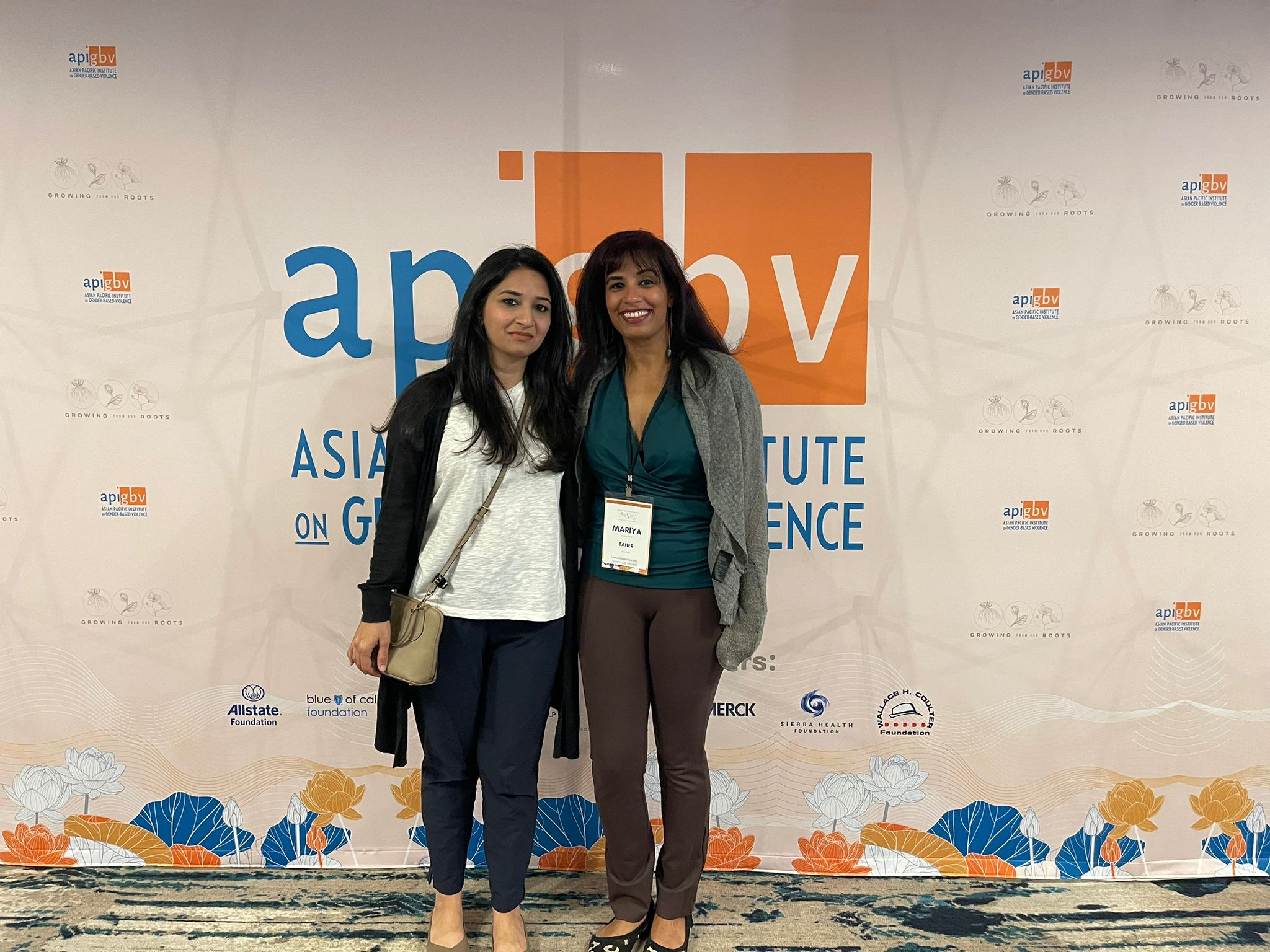By: Samman Masud
In August 2024, I, along with Sahiyo U.S. Executive Director Mariya Taher attended the Asian-Pacific Institute for Gender Based-Violence (APIGBV) National Summit in San Francisco, California. This year’s conference was aptly titled, “Growing from our Roots,” and focused on honoring the founding leaders who came together to form APIGBV in 1993, who have made landmark contributions to the field of gender-based violence and culturally specific advocacy since 1993.
The three-day summit welcomed many attendees across the country, including grantees whose community-led, gender-based violence projects are funded by the ARP Support for Survivors Program. As one of the grantees, Sahiyo U.S. has used the funding to grow our Activists Retreat Project, a program that seeks to grow a network of anti-FGC activists and survivor-advocates doing critical advocacy work to end female genital cutting (FGC) in the U.S.
The summit was brimming with positive energy with more than 400 attendees present as well as a great agenda, which welcomed speakers and guests from various organizations working in their respective ways to address the culturally specific needs of survivors, advocates and community members.
Sharing a physical space, enjoying food together, and having vibrant conversations with folks dedicated to social justice work gave me a sense of community that I so badly needed in this moment, which was laden with anxiety from events both on the domestic and the international political front. And so, I didn’t miss the chance to also join the summer soirée hosted by Survivors, Organizations, Allies, Rising (SOAR),a member collective dedicated to addressing gender-based violence issues among South Asian diaspora in the U.S. We gathered at the beautiful Chandran Art Gallery on Geary Street in chilly San Francisco, had great food, and made plans about the future of SOAR with a focus on areas of improvement, such as increasing youth representation, the importance of data collection and project duplication in our advocacy efforts.

There were many portions of the Summit I enjoyed including a workshop on effective storytelling in advocacy work, a session on diversity and equity pitfalls in hierarchical organizations, and a difficult but important conversation on male engagement efforts in gender-based violence work. The discussions in these sessions provided important reminders, likethe need to “keep the lens on the survivor”, a goal that sometimes gets lost due to many challenges that arise with routine operational and administrative work in organizations.
Recurring discussions about intersectionality brought to the forefront critical issues in gender-based violence work, for example, the need to fund flanguage access resources to help campaigns addressing communities of color. Stressing the importance of \ survivor-led efforts, and keeping the focus on the growing, intersecting needs of diverse communities in the U.S., helps to improve our work, as I hope to bring more language access to Sahiyo. One way of accomplishing this is hosting a community call in Hindi or Gujarati with members of Bhaiyo, our male engagement initiative at Sahiyo, a goal we hope to achieve later this year.
There were many great gatherings and conversations at the Summit, but for me, the highlight was listening to API-GBV Executive Director, Monica Khant in her fireside chat with activist and journalist Helen Zia. A key figure in the Asian American movement and a gender justice advocate, Zia talked about her earlier work in the civil rights movement. Sheemphasized the need to “humanize Asian Americans,” and touched on being Asian in America, which brings with it intersecting forms of oppressions like racism and sexism.

As an activist working to address FGC among South Asian community members in the U.S., I could relate very well to Zia’s discussion of the challenges that intersecting dynamics can present to survivors and community members addressing gender-based violence. Zia also stressed the importance of drawing lessons from other marginalized communities in the U.S., such as Black communities that rely on each other in times of crisis. She also emphasized the importance of continuing solidarity work with said communities to solidify the movement and address the root causes of universal, systemic causes of oppression: male privilege and the patriarchy.
With that, I realize that gender-based violence work is hard, and gets increasingly difficult given other rapidly changing dynamics of the world. Being in community and listening to the success stories of achievements through solidarity makes the work a little bit easier, and the journey more worthwhile.

